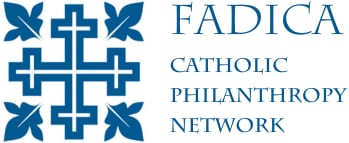Washington, D.C. – “Striking is the impact of Catholic schools on low income students,” said Francis J. Butler, President of FADICA during a November 30, 2011 Conference on Education Tax Credits at the Catholic University of America.
“Despite research that has consistently shown that the level of poverty in an American school is associated with lower achievement,” Dr. Butler told conferees, “research has also found that this correlation is not statistically significant in Catholic schools.”
The CUA conference, sponsored by its Institute for Policy Research and Catholic Studies, included an array of public policy experts, Catholic school and church leaders and legal scholars who were exploring Tuition Tax Credits from a Catholic schools perspective.
Dr. Butler attributed the success of Catholic schools with poverty populations to the school’s distinctive educational approach.
He urged the Catholic community to argue its case before public policy makers more on the contribution that Catholic schools make in producing good citizens rather than focusing on the schools themselves.
“Yearly, we are educating some two million students at the estimated cost of about $10 billion in the seven thousand Catholic schools,” Dr. Butler said. “Yet, we are saving the American tax payer at least $20 billion annually,” he continued.
Dr. Butler reviewed new tuition tax credits programs implemented in state legislatures over the past ten years and remarked: “new sources of funds are not only putting an excellent education within the reach of more low income families, but are enabling the church to expand its capacity to serve the poor.”
Currently Arizona, Florida, Illinois, Iowa, Minnesota, Pennsylvania, Rhode Island, Georgia and Indiana have education tax credit programs, where individuals and or businesses are permitted to deduct a portion of their income taxes to donate to education.
In many cases these funds are donated to school tuition organizations which in turn make these funds available to private and public schools.
Dr. Butler urged more initiative and cooperation nationally to promote the educational choice opportunities through public policy that would especially enable low income families to receive a quality education through Catholic schools.
“Catholic schools can help make that happen,” he said, “but we have to do a better job of making our case that we contribute to the common good significantly.”


